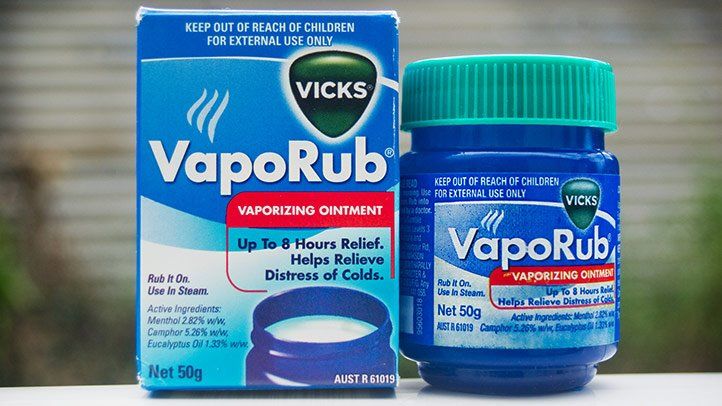Using Young Living Oils to Help Relieve Cough Symptoms
Coughing is an annoying symptom that can disrupt sleep, irritate your throat, and make you feel generally unwell. While coughing helps clear mucus and irritants from your airways, prolonged bouts of coughing can leave you feeling exhausted. If you're looking for natural ways to find cough relief, using Young Living essential oils may help.
Young Living offers a variety of essential oils that can be used aromatically or topically to help relieve cough symptoms. Certain oils contain compounds that act as natural expectorants to help loosen mucus. Others have soothing properties that can provide throat relief. Using Young Living oils for cough may provide gentler symptom relief than over-the-counter cough medications.
Tips for Using Young Living Oils for Cough Relief
Here are some tips on using Young Living essential oils to help find cough relief:
- Diffuse cough-soothing oils like eucalyptus, peppermint, and lavender to open airways and thin mucus.
- Massage cough relief blends containing oils like thyme, lemon, and frankincense into chest and throat.
- Add a few drops of respiratory-supportive oils like eucalyptus or rosemary to a warm bath and inhale the vapors.
- Mix oils like peppermint and lemon with honey and warm water to create a soothing throat gargle.
- Rub chest and neck area with oils like wintergreen, peppermint, and eucalyptus diluted in a carrier oil to relieve throat irritation.
- Keep a tissue or cotton ball soaked with cough-relieving oils like lavender and frankincense by your bedside.
- Add oils like lemon, peppermint, and frankincense to water in a cool mist diffuser by your bed.
Best Young Living Oils for Cough Relief
Here are some of the top Young Living essential oils to use for cough symptoms:
Eucalyptus
Eucalyptus oil contains the compound eucalyptol, which acts as an expectorant to help loosen mucus and make coughs more productive. The vapor of eucalyptus oil may also help open up airways and improve breathing.
Peppermint
The menthol in peppermint oil helps thin mucus, opens airways, and provides a cooling, soothing sensation that can relieve throat irritation and coughs. Peppermint also helps boost alertness, which can be helpful when coughing is interfering with sleep.
Lavender
Lavender essential oil has analgesic and sedative properties that can help numb cough-related throat pain and relax the body to improve sleep when coughing. It also contains compounds with mild expectorant capabilities.
Lemon
Lemon oil contains the compound limonene which has natural expectorant properties to help loosen mucus. Lemon oil also has an invigorating scent that can help suppress cough reflexes.
Thyme
Thyme oil contains thymol, a compound that acts as a natural cough suppressant while also working as an expectorant to clear mucus. Thyme oil can help reduce coughing fits.
Frankincense
The anti-inflammatory and analgesic properties of frankincense oil make it helpful for relieving cough-related throat pain. It also has a soothing, grounding scent that can promote relaxation to improve sleep.
Rosemary
Rosemary oil contains compounds like cineole that can help suppress coughing while also working as a decongestant to loosen mucus. Rosemary has an invigorating scent that can boost mental alertness.
Oregano
Oregano oil has expectorant properties to help clear mucus from the airways. It also contains compounds like carvacrol and thymol that have natural cough-suppressing effects.
Wintergreen
Like peppermint, wintergreen oil contains menthol which can help open airways, thin mucus, and reduce throat irritation and coughing. Wintergreen has a refreshing, uplifting scent.
Young Living Cough Supportive Oil Blends
Young Living also offers several premade essential oil blends designed to help relieve cough symptoms:
R.C.
R.C. contains eucalyptus, myrtle, pine, lavender, marjoram and spruce oils to help clear airways, reduce mucus, and ease breathing. The scent is refreshing but soothing.
Breathe Again
Breathe Again is a roll-on blend with eucalyptus, peppermint, lavender, lemon, cardamom, and ravensara oils to open airways, fight coughs, and boost circulation.
Thieves
Thieves oil is a blend that contains eucalyptus, lemon, cinnamon bark, clove, and rosemary oils. It supports healthy respiratory function while providing an energizing aroma.
Tips for Safely Using Oils for Cough Relief
When using Young Living essential oils for cough relief, follow these tips:
- Always dilute oils before applying topically, especially on sensitive areas like the throat and chest.
- Use cool or lukewarm water for baths with essential oils, as hot water can cause oils to irritate skin.
- Monitor cough symptoms and consult a doctor if a cough lasts more than a few days or is accompanied by fever, fatigue, or difficulty breathing.
- Talk to your doctor before using essential oils if you have respiratory issues like asthma.
- Avoid getting oils near the eyes or ears.
- Perform a skin patch test before applying a new oil topically to check for potential allergic reactions.
- Use a carrier oil like coconut, olive, or avocado oil to dilute essential oils before topical use on children.
Other Natural Remedies for Cough Relief
Along with using Young Living essential oils, there are some other natural ways to help calm cough symptoms, including:
- Increasing fluid intake - Drinking lots of water can help thin mucus and prevent dehydration from coughing fits.
- Running a humidifier - Humidifying the air can soothe irritated airways and loosen mucus to suppress coughs.
- Gargling with salt water - Gargling with warm salt water can help reduce swelling and irritation in the throat.
- Sipping herbal tea - Soothing teas like ginger, mint, licorice root, or slippery elm may help reduce coughs.
- Eating honey - Honey has natural cough-calming effects and can also help coat and soothe an irritated throat.
- Taking expectorant supplements - Over-the-counter expectorants like guaifenesin can thin mucus.
- Using a cough drop - Cough drops with anesthetics and throat coatings can temporarily suppress cough reflexes.
When to See a Doctor for Cough Symptoms
While using Young Living oils and other natural remedies can help temporarily alleviate cough discomfort, it's important to see a doctor if your cough:
- Lasts longer than 3 weeks
- Produces phlegm that is green, yellow, or blood-tinged
- Is accompanied by difficulty breathing
- Occurs alongside symptoms like fever, chest pain, or unintentional weight loss
- Interferes significantly with sleep or daily activities
Seeking medical treatment is also a good idea if you cough hard enough to trigger vomiting, lightheadedness, or cough syncope (fainting).
A chronic or severe cough may be a sign of an underlying health condition that requires proper diagnosis and treatment. This may include infections, allergies, asthma, reflux, sinus problems, or lung disease.
Conclusion
Coughing can disrupt daily life and keep you up at night. Using Young Living essential oils aromatically and topically may help provide natural cough relief by soothing irritated airways, thinning mucus, suppressing cough reflexes, and promoting relaxation.
Oils like eucalyptus, peppermint, lavender, lemon, thyme, and frankincense can help open airways, loosen phlegm, reduce cough spasms, and ease related throat discomfort. Blends like R.C., Breathe Again, and Thieves provide cough-supportive benefits.
Along with essential oils, increasing fluids, using a humidifier, gargling salt water, sipping herbal tea, and taking expectorants can help calm coughs. See a doctor if your cough is chronic, severe, or accompanied by concerning symptoms.
Using Young Living's high-quality essential oils and oil-infused products may help you breathe easier and get the rest you need when cough symptoms strike.
FAQs
What are the best Young Living oils to use for coughs?
Some of the top Young Living oils to use for cough relief include eucalyptus, peppermint, lavender, lemon, thyme, frankincense, rosemary, oregano, and wintergreen.
How do I use Young Living oils to help relieve cough symptoms?
You can diffuse cough-soothing oils like eucalyptus and lavender, massage oil blends into your chest and neck, add oils to a warm bath, use diluted oils topically, or inhale oils from a tissue or cotton ball.
Are Young Living essential oils safe to ingest?
Unless specifically labeled for internal use, Young Living oils should not be ingested. Use the oils aromatically or topically for cough relief.
Can I apply the oils directly to my skin?
It's best to dilute the oils with a carrier oil before applying them to your skin to avoid irritation. Perform a patch test first as well.
How long should I use essential oils for cough relief?
Only use the oils for a day or two. Seek medical treatment if your cough lasts longer than 3 weeks or is accompanied by concerning symptoms.
Disclaimer: This article is for informational purposes only and does not constitute medical advice. Always consult with a healthcare professional before starting any new treatment regimen.
Related Coverage
Research is mixed on whether Vicks VapoRub relieves cough, congestion, and aches from the flu. It may help temporarily when used safely in adults and children over age 2....
Learn how phlegm protects respiratory health, what normal & abnormal mucus looks like, when to seek medical help for changes, and how to improve lung wellbeing....
Discover reasons you may feel chilled or shaky after eating including temperature changes, blood flow shifts, insulin response, and more. Get tips to prevent it....
Compare Alka-Seltzer Plus and DayQuil cold and flu products by ingredients, formats, symptom relief abilities and more to determine which OTC medication is best for your needs....
Learn about the science-backed benefits of Nature's Truth black elderberry extract for immune health. Discover research on elderberry for colds/flu and get expert tips for usage....
Vicks Flu Therapy tea containing honey, zinc and echinacea is a natural remedy that can help prevent and treat cold and flu symptoms....
Learn about Coricidin HBP, its ingredients, and how it can cause drowsiness. Discover user experiences and important safety considerations to make informed decisions about this medication....
Learn about using onions on feet as a home remedy. This folk remedy may help reduce inflammation, improve circulation, and provide natural relief for tired, aching feet....
Can you safely take ibuprofen and DayQuil together? Experts warn combining them poses avoidable risks like liver toxicity, bleeding issues, and intensified side effects....
Examining the potential impact of NyQuil on blood pressure levels, especially for high-risk groups like the elderly, those with hypertension, heart disease, or who are pregnant....








